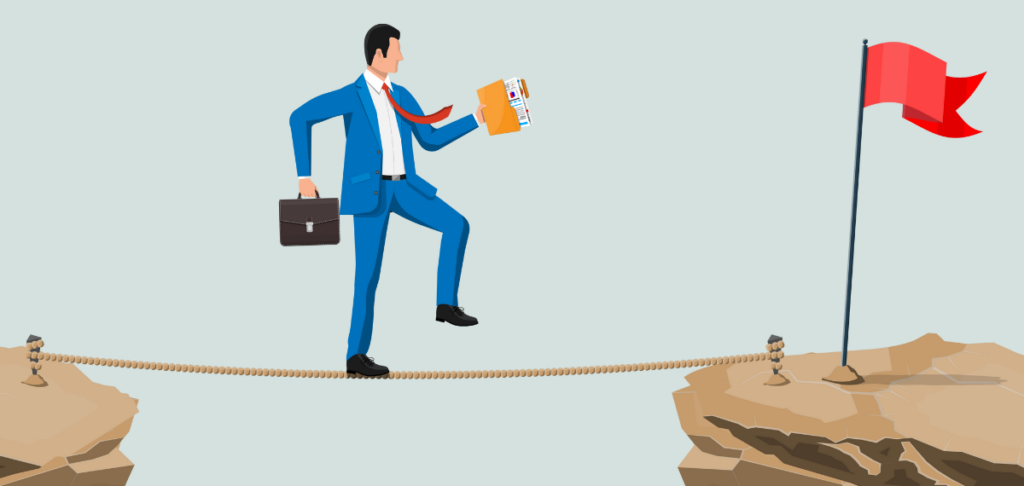Pay your dues is an idiom that means enduring all the bad for the sake of the reward at the end. Idioms like this are non-literal sayings, and this one is important to the English language because it symbolizes the journey of hard work and the patience needed to succeed.
My guide jumps right into the meaning of this idiom, its origins, and how you can use it in various contexts. Plus, I’ll also provide tips on using it effectively with alternative sayings. At the end, you’ll have a comprehensive understanding of how to use pay your dues in your daily conversations and writing.

What Does the Idiom Pay Your Dues Mean?
The idiom pay your dues means to work hard, gain experience, and earn a certain level of respect or success through a period of effort and sacrifice. It often refers to the idea of earning recognition or success by facing challenges, investing time, and overcoming obstacles in a specific field or endeavor.
The Collins Dictionary defines the phrase as a slang expression, meaning “to earn certain rights, privileges, etc. as by having suffered in struggle.” Moreover, the Cambridge Dictionary defines it as “to do something that you do not enjoy in order to have something that you want, or because you feel it is your duty.”
The phrase makes me think of my own journey as an author. When I started out in the publishing industry, I didn’t know a thing, and other indie authors were very gatekeep-ish about advice and methods.
So, I paid my dues by learning everything the hard way. And now, after fifteen years, my reward is a solid author career with an amazing readership. Plus, I get to write about writing and share everything I’ve learned with you!
Literal Meaning vs. Figurative Meaning
The literal meaning of pay your dues can refer to the act of paying membership fees or dues for a club or organization. However, figuratively, it transcends its literal monetary connotation to symbolize the investment of time, effort, and sometimes even hardship in the pursuit of an end goal.
Variations of the Idiom
- I’ve been paying my dues and working overtime to earn that promotion.
- Clarke really paid her dues in the industry before becoming a CEO.
- Emori needs to pay up when it comes to her dues if she wants that raise.
- Raven diligently pays her dues through hard work and perseverance.
How Is Pay Your Dues Commonly Used in Context?
The idiom pay your dues is commonly employed to convey the idea of working diligently, gaining experience, and meeting obligations to achieve success, recognition, or advancement. This idiom is widely used in professional settings and personal endeavors to emphasize the journey of hard work and dedication that precedes achieving goals.
In the following sections, we will explore the various ways in which pay your dues is utilized, offer tips on its effective application, and provide examples that showcase its usage in different contexts.
What Are Different Ways to Use Pay Your Dues?
These examples showcase the diverse ways in which the idiom pay your dues can be applied to different aspects of life.
- Professional growth: After years of hard work and dedication, Octavia finally earned that leadership role—proof that paying your dues in the corporate world pays off.
- Artistic pursuits: As an aspiring musician, Kane performed countless gigs in small venues, paying his dues before landing a record deal.
- Educational journey: Graduate students often pay their dues through rigorous coursework and research projects before earning their advanced degrees.
- Entrepreneurial ventures: Successful entrepreneurs understand the importance of paying dues, facing challenges, and learning from failures on the path to business success.
- Community involvement: Volunteering in various community projects is a way to pay your dues and contribute to the betterment of society.
What Are Some Tips for Using Pay Your Dues Effectively?
- Use it to acknowledge someone’s hard work and experience.
- It’s apt for situations where someone’s efforts over time have led to their success.
- Avoid using it in contexts where instant success or luck is involved, as it might seem out of place.
Where Can You Find Examples of Pay Your Dues?
In literature and movies, this idiom frequently illustrates a character’s journey of growth and struggle. For instance, in the movie “The Pursuit of Happyness,” the protagonist’s journey can be described as paying his dues before achieving success.
It’s also the actual title of a popular song by artist Anastasia, where the lyrics tell the story of the things she’s overcome to get where she is. One of my husband’s favorite inspirational quotes is from Chuck Norris, “Whatever luck I had, I made. I was never a natural athlete, but I paid my dues in sweat and concentration and took the time necessary to learn karate and become world champion.”
It has also been used in online publications. For example:
Like the other two men, Josh has paid his dues on the rodeo circuit, so it wasn’t as though he was afraid of getting bucked off. (The Pueblo Chieftan)
The one-time running back proved himself to be a quick study at linebacker, and a willing participant to pay his dues. (Sports Illustrated)
What Is the Origin of the Idiom Pay Your Dues?

The idiom pay your dues likely came from the act of paying a fee to a club or organization. It first came into use as an idiom in the 1600s to refer to a physical or moral debt. In the mid-1900s, the expression pay one’s dues came into use in American English to mean to endure unpleasant work or circumstances in order to learn one’s craft or earn the right to advance.
How Did the Idiom Evolve Over Time?
From its literal sense of paying membership fees, the idiom has evolved to broadly represent the concept of investing time and effort before achieving success or recognition. It’s such a solid expression that both its literal and figurative uses are still in use.
What Are Some Related Terms to Pay Your Dues?
Always familiarize yourself with alternatives and opposites to common idioms to round out your understanding of how they are used. Here are a few to help you out.

Synonyms
- Earn your stripes
- Cut your teeth
- Put in the work
- Did my time
- Pay your debts
- Pony up
- Climb the ladder
Antonyms
- Get a free pass
- Silver spoon
- Have it handed to you
Pay Your Dues: Test Your Knowledge!
Choose the correct answer.
What Have We Learned About Pay Your Dues?
Pay your dues is a powerful idiom that combines the journey of hard work, perseverance, and the eventual gratification of achieving one’s goals. Now that you’ve learned about its origin, meaning, and how its usage can add depth to our language, you should be all set! Be sure to study up on more of my idiom guides right here on our site!
